Come
Come, come, whoever you are. Worshiper, Wanderer, Lover of Leaving; ours is not a caravan of despair. Though you have broken your vows a thousand times...Come, come again, Come.
~Mevlana Rumi
Come, come, whoever you are. Worshiper, Wanderer, Lover of Leaving; ours is not a caravan of despair. Though you have broken your vows a thousand times...Come, come again, Come.
~Mevlana Rumi
There are times when things happen, changes occur and one just goes with the flow without thinking about it. After a while comes the critical stage when mind wants to analyze what has happened. Should one ignore mind’s request or not? It seems very difficult to ignore that. One feels tempted to think about it, to try to grasp what has occured and why. Still, the whole thinking procedure is totally useless and brings only confusion - more questions than answers. Analysis is always based on past. And those memories, reflections, shadows about what happened are not the actual event - not even close. What was there was an event on its wholeness. What we can recall is just fragmentation about experiencer and experienced.
After writing about various subjects, I feel like shutting up :) One of the problems my ego has, is that it can always come up with the answer. Ask me anything (concerning humanity) and I will probably never say ”I don’t know”.
And still I know that I know nothing. It is a paradox of course. I can be quiet, never write & say anything - or I can try to express my view and during that get caught up with words.
Anyway from now on I will write about totally random things when I feel like it.

Many people through history have estimated that there will be a day when the whole humanity is transformed. When we have all become aware of roots of our problems and solved them once and for all. It seems to me that this is very unlikely to happen anytime soon, if ever. Few things would need to happen before there would be even any possibilities for this, here is a such fantasy view:
1) All countries should cease to exist. Humanity should be united. In distant future it’s quite possible that borders disappear. Of course there will be still lots of other groups but absence of countries might give enough chances for the next step:
2) Whole current education system should be thrown away. Nowadays education exists only because it serves society by giving it skilled workers. Education should teach us humanity - of its joy, of its problems. It should provide us clarity and insight, which in turn would make us observe ourselves - the whole purpose of such education would be to make us explore ourselves. It is true that even then many people would not be interested about such education but if it was started at early age, before the child is fed (brainwashed) with ideas – it might work. This step would probably require that our techonology level has raised so much that work is no longer necessary for survival, therefore knowledge type of education would no longer be needed. Still, this step seems very steep and all remaining groups (political, religious, etc) & old generation would oppose it. Frankly I can’t see it ever happening.
All that being said there’s a quote in my mind:
You can not change the world but you can change yourself.
That is what is really needed anyway.
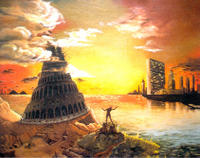
Whenever ”we” are frustrated, angry, sad, depressed, bored and so on - it’s because of the mind, because of the ego. It’s very important to notice that instead of focusing into external reasons that are bothering the mind. External things are never the real reason for suffering – it’s always about how the mind reacts to those external things. And as long as mind reacts to those external things, one will suffer. But if one sees all that, then ego loses its dominance and suffering starts to wane. Then ”I” is never sad/etc. One stops relating to concept of ”I” and starts seeing the roots of thoughts that cause suffering because they are desires & fears in disguise.
The following two quotes are not really related to the subject but needed to be published anyway:
The truth is that our finest moments are most likely to occur when we are feeling deeply uncomfortable, unhappy, or unfulfilled. For it is only in such moments, propelled by our discomfort, that we are likely to step out of our ruts and start searching for different ways or truer answers.
~M. Scott Peck
I wanted a perfect ending. Now I've learned, the hard way, that some poems don't rhyme, and some stories don't have a clear beginning, middle, and end. Life is about not knowing, having to change, taking the moment and making the best of it, without knowing what's going to happen next. Delicious Ambiguity.
~Gilda Radner

Question: What is the meaning of life?
Answer: What is the meaning of a flower?
Now, there are two ways to interpret the answer. First way is to observe the flower. What does the flower do? Bloom. Is that the meaning of flower? Ask the flower. Second way is to see the insanity of the whole question. When the question no longer makes sense to you, the answer disappears as well.
People are still very troubled by this search of purpose. That’s why some people dedicate their life to work - feeling useful and needed there. Some people dedicate their life to family – same stuff. If one lives life through something (work, family, anything) then that something is just a substitute for life itself. All purposes are nothing but attempts to fulfill the question.
Here are few quotes regarding the subject:
In this very breath that we take now lies the secret that all great teachers try to tell us.
~Peter Matthiessen
"Be sure to make mistakes. Make a lot of them, because there's no better way to learn and to grow."
~Dawson´s Creek (Jen Lindley)
"Do what you want to do. It is your life. Fill it with your own choices."
~Ishani
"It's not what happens to you, but what you do with whatever happens to you."
~W. Mitchell

Here are some nice quotes about simplicity:
The aspects of things that are most important to us are hidden because of their simplicity and familiarity.
~Ludwig Wittgenstein
Any intelligent fool can make things bigger, more complex, and more violent. It takes a touch of genius—and a lot of courage—to move in the opposite direction.
~E. F. Schumacker
It is the sweet, simple things of life which are the real ones after all.
~Laura Ingalls Wilder
Our life is frittered away by detail... Simplify, simplify, simplify! ... Simplicity of life and elevation of purpose.
~Henry David Thoreau
Simplicity, simplicity, simplicity! I say let your affairs be as one, two, three and to a hundred or a thousand… We are happy in proportion to the things we can do without.
~Henry David Thoreau
Most of the luxuries, and many of the so-called comforts of life, are not only not indispensable, but positive hindrances to the elevation of mankind. With respect to luxuries and comforts, the wisest have even lived a more simple and meagre life than the poor.
~Henry David Thoreau
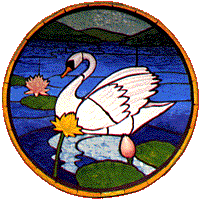
In the past I didn’t pay attention to these ”satori” experiences but right after I become interested about spirituality I started noticing them. Naturally there’s no formula in order to create them. Once you are experiencing it (that’s bit misleading way to say it - better description would be: there is just reality in its wholeness) there’s tendency to prolong it as long as possible but it will come and go as it will and clinging in ”satori” is still clinging.
The eternal question ”what do I have to do to experience that?” is a ”wrong” question. In ”satori” there’s no experiencer and experience – experiencer is the experienced. No boundary between you and reality – you are the world and the world is you. You can start noticing when that happens just by giving more time to yourself and becoming more observant.
Gurdjieff put it like this:
Self-observation brings man to the realization of the necessity of self-change. And in observing himself a man notices that self-observation itself brings about certain changes in his inner processes. He begins to understand that self-observation is an instrument of self-change, a means of awakening.
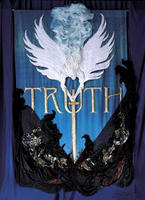
"A thing is not necessarily true because badly uttered, nor false because spoken magnificently."
~St. Augustine
"How many legs does a dog have if you call the tail a leg? Four. Calling a tail a leg doesn't make it a leg."
~Abraham Lincoln
People recognize and condemn the first type of lying. Second type of lying is more difficult to recognize but it’s all around us. We hear those lies without recognizing them as lies and keep spreading them to others. That includes all ideas about how to live, what is important/right/wrong/good/bad, groups which people think unites them but in fact separates them (countries, races, religions, etc) and everything that feeds our desires and fears (and even creates new ones).
Truth is something that cannot be given from one to another. So many have tried that and result has always been a structure, which is far from truth. One may point out to the truth, give some hints about facing it but one must see the truth on its own. Human mind does not like that at all as it’s always seeking for some means to reach the goal, some answers instead of observing the questions and questioner.
One of J. Krishnamurti’s favorites was the following story:
You and a friend are walking along the path. And as you go along up the path you happen to pick up something ravishingly beautiful, sparkling, a jewel of extraordinary antiquity and beauty. You are so astonished to find it. You look at it with great astonishment. You hold it for some time, amazed and silent. Then you put it very carefully in your inside pocket, button it, and are almost frightened that you might lose it or that it might lose its sparkling, shining beauty. And you put your hand outside the pocket that holds it. The other sees you doing this and sees that your face and your eyes have undergone a remarkable change. There is a kind of ecstasy, a speechless wonder, a breathless excitement. When the man asks: ‘What is it that you have found and are so extraordinarily elated by?’ you reply in a very soft, gentle voice (it seems so strange to you to hear your own voice) that you picked up truth. You don’t want to talk about it, your are rather shy; the very talking might destroy it. And the man who is walking beside you is slightly annoyed that you are not communicating with him freely, and he says that if you have found the truth, then let’s go down into the valley and organize it so that others will understand it, so that others will grasp it and perhaps it will help them. You don’t reply, you are sorry that you ever told him about it.
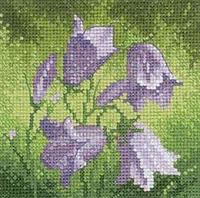

It happens so often that words become more important than what they describe. That’s because we deal with words all the time, every day – as with reality we deal only occasionally and mind cannot grasp it. So we focus our attention on words and let them become big part of our life. We become hurt & delighted by the words and we start to desire & fear hearing certain words. World of words is the usual playground for us.
Humans have created names for things, language, in order to communicate. All names (words) are abstract concepts and should be always treated such way. Let’s take an example. I saw a cute dog wandering around alone and then later wanted to tell my friend about it. I could tell the race of the dog, where it was and what it was doing but my friend’s image of the dog would be based on his idea about that race, place and behaviour. It would not be the same dog that I saw. That’s the problem in all verbal communication between humans - we can’t express anything in its fullness, as it is. Ok, sounds simple but didn’t I also see that dog not as it really was but based on my mind’s ideas about it? Most likely I did. Even if we saw the dog together with my friend, not only our images what we saw would be different but neither of us would have really seen what was there.
Here is what Chuan Tzu said about words:
The purpose of a fishtrap is to catch fish, and when the fish are caught, the trap is forgotten.
The purpose of a rabbit snare is to catch rabbits. When the rabbits are caught, the snare is forgotten.
The purpose of words is to convey ideas. When the ideas are grasped, the words are forgotten.
Where can I find a man who has forgotten words? He is the one I would like to talk to.
There is also a beautiful story about Buddha who was about give a speech. Lots of people had gathered to listen to him. He was a silent for a long time and then picked up a flower from the ground. Still saying nothing he started to twirl the flower. One person from the audience suddenly started to smile, grasping what cannot be said. That is how Zen, direct transmission was born.
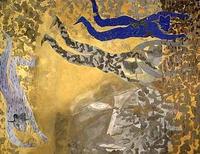
We have approximately 50,000 - 60,000 thoughts per day. Unfortunately 95% of those thoughts we had today are the same ones we had yesterday!
Whatever problems, worries, fears, doubts and desires we have, they are like a circle, which we deal with every day. Every day same stuff. Every now and then we escape from that circle for a moment – and then fall into it again. We feed that circle by putting more and more energy into that. That constant circle of realizing and forgetting is another way to understand term reincarnation. We escape (”die”) from concept of ”me” for a short moment and then immediately born again into that circle. When one starts to recognize the pattern, stepping out of it becomes easier.
When patterns are broken, new worlds emerge.
~Tuli Kupferberg

Hugh Prather:
To live for results would be to sentence myself to continuous frustration. My only sure reward is in my actions and not from them.
Leo Tolstoy:
Everyone thinks of changing the world, but no one thinks of changing himself.

If there was a time machine, where would you like to go in the future?
I have never been too interested about the future and it’s more difficult question to answer because future is unknown. Anyway, perhaps I would take a peek of humanity in year 3000.
And in the past?
Well, there would be lots of interesting places to visit. Here are some of them in random order:
· meeting spiritual persons like Buddha, Jesus, Socrates, Bodhidharma, Dogen and J. Krishnamurti. It’s difficult to say who would I like to meet most – I could communicate verbally only with last one.
· sharing few bottles of wine with Cyrano de Bergerac while talking about literature
· same kind of evening with Alexandre Dumas
· exploring time of king Artuhur
· seeing techniques of Miyamoto Musashi & Morihei Ueshiba
· checking out how dinosauruses looked for real
· playing few games of chess with Paul Morphy
And in your own past?
That’s a tricky question, which I have thought about sometimes. The thing is that if I went to the past to face some moment there, it would be experienced very differently as I’m not the same person as I was back then. Also I would have to be careful not to change anything in the past as everything that has happened has been perfect pieces in huge mosaic. Anyway I could go, for example, to spend again a fun poker night in Israel but it would surely feel weird.
If you could choose any time in history or in future to live in, which one would you choose?
I think most people would not want to leave the present time because of the friends & family. I would probably choose not to leave either but if I had to choose then it would be a difficult choice but let’s pick an old idea of living at the 17th century.
Where do you see yourself in 20 years?
I never really think about that. In the past I had impression that I probably die young. Perhaps it was just that it was difficult to imagine myself as an old or perhaps I was never too attached with life itself. Anyway, in 20 years I am either dead or enjoying life :) I do not try to give any concrete description of that life as it’s just attempt to list dreams which I don’t actually have nowadays.
What would you say if you could send message to yourself 10 years back?
Another one of my favourite thoughts. Problem here is the same as going past in one’s life – I would not like to change anything that has happened. But if we view this question that way that I would be talking to another dimension of reality and that ”me” would continue his life in another dimension – well then it would be a huge discussion and it might turn out to be worthless because the past me would not accept some things that I would say before he experiences them. So perhaps I would just point out few books to read. The scene of myself arguing with myself does make me laugh though :)
And as a closing note, here’s a beautiful quote from Rumi:
Come out of the circle of time
And into the circle of love.
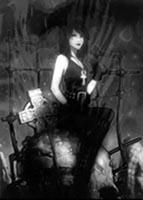
Everything that has a beginning, has an end.
We spend huge deal of time thinking about life and all things related, except death. How often does one think that ”this may be the last day, last moment of my life”? It may be but we never want to acknowledge that, we always live in a strong belief that there will be a tomorrow. Idea of tomorrow makes us move our plans, our dreams into distant future. That usually leads into situation where one chooses not to be happy right now - only in the future when one gets/achieves something.
Eat, drink, and be merry, for tomorrow you may die.

As mentioned before, love does not require target (or even can’t be targeted). So love does not require relationship. One can live alone full of love. Many spiritual characters through history have chosen this way for few reasons. First of all there’s no real need to be with someone, to have a relationship anymore. Second of all it’s very difficult to be with someone who does not share this view to love but lets it to be covered, not to mention that one’s vision may become somewhat covered too as mind is strong. So surely being alone is an easy solution if one is able to break free from loneliness, which I wrote about earlier. On the other hand there’s nothing “wrong” with relationships either, there’s a great beauty in sharing – if couple is able to practice losing of this concept of “I” together and become one. There are just traps here and there to be noticed.
There are also such concepts as “true love” and “soulmate”, which are close to each other. They are based on a wish that there’s a person for all of us (set by a God or destiny) who understands us totally and with who we can live happily ever after. My mind used to believe in both concepts, just because of the beauty of ideas. Nowadays I see these ideas as different type of traps though those traps should not be considered as negative because a great deal can be realized when the trap is broken.
Though I did not directly say what love is, I can quote Karen Sunde’s attempt to put it into words: